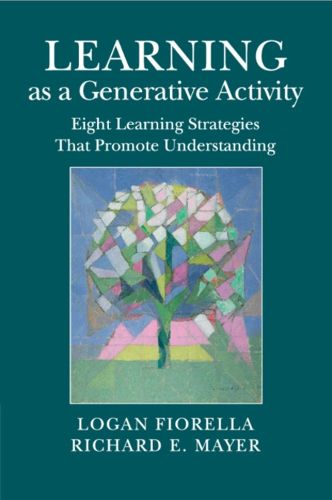Readings Newsletter
Become a Readings Member to make your shopping experience even easier.
Sign in or sign up for free!
You’re not far away from qualifying for FREE standard shipping within Australia
You’ve qualified for FREE standard shipping within Australia
The cart is loading…






During the past twenty-five years, researchers have made impressive advances in pinpointing effective learning strategies (namely, activities the learner engages in during learning that are intended to improve learning). In Learning as a Generative Activity: Eight Learning Strategies that Promote Understanding, Logan Fiorella and Richard E. Mayer share eight evidence-based learning strategies that promote understanding: summarizing, mapping, drawing, imagining, self-testing, self-explaining, teaching, and enacting. Each chapter describes and exemplifies a learning strategy, examines the underlying cognitive theory, evaluates strategy effectiveness by analyzing the latest research, pinpoints boundary conditions, and explores practical implications and future directions. Each learning strategy targets generative learning, in which learners actively make sense out of the material so they can apply their learning to new situations. This concise, accessible introduction to learning strategies will benefit students, researchers, and practitioners in educational psychology, as well as general readers interested in the important twenty-first-century skill of regulating one’s own learning.
$9.00 standard shipping within Australia
FREE standard shipping within Australia for orders over $100.00
Express & International shipping calculated at checkout
During the past twenty-five years, researchers have made impressive advances in pinpointing effective learning strategies (namely, activities the learner engages in during learning that are intended to improve learning). In Learning as a Generative Activity: Eight Learning Strategies that Promote Understanding, Logan Fiorella and Richard E. Mayer share eight evidence-based learning strategies that promote understanding: summarizing, mapping, drawing, imagining, self-testing, self-explaining, teaching, and enacting. Each chapter describes and exemplifies a learning strategy, examines the underlying cognitive theory, evaluates strategy effectiveness by analyzing the latest research, pinpoints boundary conditions, and explores practical implications and future directions. Each learning strategy targets generative learning, in which learners actively make sense out of the material so they can apply their learning to new situations. This concise, accessible introduction to learning strategies will benefit students, researchers, and practitioners in educational psychology, as well as general readers interested in the important twenty-first-century skill of regulating one’s own learning.